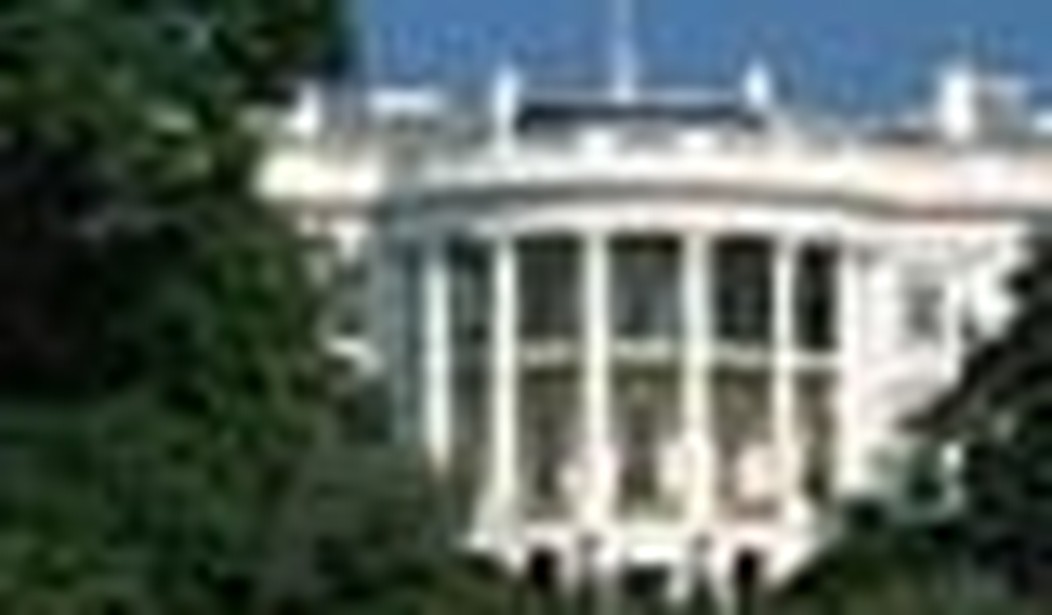Among the serious problems with Republican administrations is that many of their political appointees in middle management are often put in charge of areas they know nothing about.
This makes them dependent on career staff, with all of the bad consequences I have previously described. I know a conservative career lawyer who works at the Justice Department. Unfortunately, the chief of staff for the Bush political appointee who ran his division knew next to nothing about the work done by this division. The chief of staff did not want to make any mistakes that would garner the attention of higher-ups within the department or at the White House. Thus, this staffer relied on the advice of long-time senior career employees, advice based on liberal, left-wing policies unchanged from the Clinton administration.
My friend obviously could not complain about this to his career managers, but he tried to bring this to the attention of the political appointee and his chief of staff. He was disciplined for going outside the chain of command — the chief of staff was not interested in rocking the boat in any way that would call attention to his ignorance, or upset liberal advocacy groups or the media and potentially screw up his chances for future advancement.
As Roger Clegg of the Center for Equal Opportunity described in the Wall Street Journal, many Republican political appointees are intimidated by career employees. Clegg was initially disinvited from testifying about pervasive reverse discrimination by companies on the basis of “diversity” and the EEOC’s refusal to do anything about it. The head of the commission was afraid it would “lead to a ‘mutiny’ among the career people at the commission.” I saw this kind of political cowardice on many occasions, particularly as Clegg has said, because political appointees want to go on to their next job without having to deal with controversy generated by criticism from career employees.
While a president’s top appointees — like attorney general or secretary of state — get lots of attention, we never hear much about the hundreds of other appointees who inhabit the middle levels of management. Many are early in their careers, and although they may have been appointed to middle level posts in the Bush administration, all of them hope that they will advance to higher posts in the next Republican administration. Some of these appointees looked at the past nominees who had been filibustered, such as Miguel Estrada (or me), and realized that pursuing policies that upset liberals could result in their nominations getting torpedoed if they were selected for a higher post. They changed their behavior and avoided implementing conservative principles on important public policy issues out of fear that this would upset the Left.
This was not noticed because those decisions were often made at a level low enough that we would never hear about it. But it impaired implementation of conservative policies in many different areas, and it frustrated other political appointees who wanted to forcefully push conservative principles.
This brings up another area in which conservatives are very deficient in comparison with their liberal counterparts. Liberal advocacy organizations in Washington vastly outnumber the Right in terms of the number of organizations, funding, and an ability and willingness to make sustained and noisy demands on government agencies. They closely monitor the policies and regulations being formulated by federal agencies and howl in protest when they see things with which they disagree.
Conservatives do not have anywhere close to the resources liberal groups do, and they rarely engage in the same level of monitoring and activity to stop or change government policies and regulations. For example: I know someone who works in an agency that gets constant demands for meetings from liberal advocacy groups in a very important policy area. The groups meet regularly with the political appointees who head that agency to question and criticize the policies of that agency and to make demands. This same agency never gets calls or requests for these types of meetings from conservative groups, despite the importance of this particular policy area.
This is a common experience throughout the executive branch.
One of the biggest problems faced by conservatives is caused by the inherent nature of Washington. The city is like a Pennsylvania coal town of a hundred years ago. It is a company town, and everyone either works for the company (the federal government) or makes money off of the company (lobbyists, lawyers, contractors, and advocacy organizations).
The company newsletter for too many people in Washington is the Washington Post, and each morning everyone in Washington picks up the company newsletter to see if they are being talked about. All of this provides a very distorted vision to individuals who inhabit Washington for too long. After a while, too many start to care what the Washington Post and everyone else in Washington says about them. This is absolutely fatal for Republicans (and conservatives), because they inevitably compromise their principles to avoid criticism in the editorial pages and the company’s social life. The only conservatives who stay conservative in this company town are those who not only do not care what the Washington Post or the New York Times say about them, but realize that if the liberal media actually approve of what they are doing, then they must be doing something wrong. Such individuals are often too rare among political appointees.
Conservative political appointees who are not personally concerned about media criticism can still be affected by White House staffers. Even when Republican presidents do not care about criticism of their policies, that attitude does not always transfer to their staff.
Many of those staff members, particular the younger ones, think it is their job to minimize negative stories about their administration. All too often, a negative story will prompt a telephone call from a White House staffer to the political appointee in charge of the office that is the subject of the story. The tenor of the call is always the same: why are you in the news and why are you generating negative stories about the administration and the president? These types of calls affect political appointees exactly as you would expect — they change their behavior to avoid upsetting the White House, and the only way to do that is to continue liberal policies and not make any changes. Not only do you need conservative political appointees who are unconcerned by media criticism, you need a White House staff that does not get concerned about such criticism and realizes it means their political appointees are effectively implementing conservative policies.
Finally, the executive branch suffers from a “bubble” effect that isolates them from the outside world. Unfortunately, this is a particularly acute problem for the staff of the president in the White House, the West Wing, and the old Executive Office Building. Initially, Republican political appointees have a pretty good grip on the pulse of the nation’s voters and the grassroots base. Many of them have worked on a two-year presidential campaign where they got a very detailed picture of the important issues faced by the country and the kind of public policies the grassroots base support. This is usually very different than the accepted wisdom in Washington.
But once they go to work in the executive branch, they slowly lose touch with the grassroots. Every day they talk to the same people in Washington — other political appointees and congressional staff, Washington insiders who are part of the company town. The longer they are here, the more they lose touch with the political base and the views of the heartland. All they see, hear, and think about is what goes on in the Washington “bubble,” a place where conservatives and conservative policies are treated with the utmost contempt and disdain. Making sure that conservative policies are implemented can become less and less important the longer they serve in that bubble.
Every year, all of these predominantly liberal federal agencies and departments get bigger and acquire more power. The most expedient solution to reducing the power and liberal influence of the federal government would require the radical downsizing of the entire executive branch. Unfortunately, that will never happen because the political will to do so does not appear to exist in Washington.
In fact, it is guaranteed that the exact opposite will happen.
I am absolutely convinced that you could cut every federal department in Washington in half and the average American would notice absolutely no difference in their everyday lives, despite the howling protests of the liberal press, the Washington political establishment, and the public employee unions. Downsizing would help reduce the constant interference that federal agencies exert in the lives of Americans because it would decrease the resources that the feds could spend on such interference. Unfortunately, this is not going to happen. In fact, the huge bailout (and nationalization) that has now involved the federal government in numerous industries, from banks to insurance to Wall Street, along with the unprecedented increase in the size of the federal government being implemented by President Obama, will be almost impossible to ever undo. I shudder to think about liberal career civil servants planning, directing, and otherwise acting as the governing management of significant portions of the formerly private sectors of our economy.
The executive branch of the federal government is an ever-growing behemoth that is slowly invading every facet of American life. The only way this will ever change is if conservatives finally realize that when they control Congress and the White House, that is only the beginning of the fight. They can only effect change and implement conservative public policy by capturing, controlling, and radically reducing the vast federal civil service bureaucracy in the executive branch.
Only then will the nation’s accelerating path towards socialization be halted and drawn back.









Join the conversation as a VIP Member